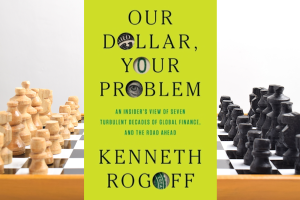During his keynote address to the European Financial Congress, Institute Advisory Board memberRoman Frydman argued that capitalism itself did not fail. Instead, Frydman placed the blame on those who promulgated the theories that guided policy makers.
“I would like to pin a significant share of the blame on economists,” Frydman said. “It was their ideas concerning the role and functioning of financial markets in capitalist economies that provided the supposedly scientific underpinning for policy decisions and financial innovations that made the crisis much more likely, if not inevitable.”
And while some might think the influence of academics on policy is limited, Frydman disagrees. “Economists’ model-building is not some harmless academic exercise,” he said. “These models wield significant influence over real financial-market participants, policymakers, and the wider public.”
These theories created a faith in the mechanistic rational market that was a key cause of the crisis, Frydman suggested, deriding the “unsuccessful – and largely American – experiment in viewing the macroeconomy and financial markets as machines.”
This view failed because it doesn’t account for imperfect knowledge, a key factor in the economy according to Frydman, one of the founders of Imperfect Knowledge Economics (IKE) and Chair of the Institute’s IKE program.
For example, “profit-seeking market participants do not internalize the huge social costs associated with excessive upswings and downswings in these markets,” Frydman said. This insight from IKE goes a long way toward explaining why self-interested behavior can fail to protect society from asset bubbles.
But those who wish for heavy regulation to balance out an inherently unstable market also fail to see the significance of imperfect knowledge on economic behavior. “Our proposed regulatory framework recognizes that policy officials, like everyone else, must cope with ever-imperfect knowledge,” Frydman said.
Recognition of imperfect knowledge by both market participants and policymakers will be essential in moving beyond old economic models and creating effective policies in the future. Otherwise, we’ll continue to repeat the mistakes of the past by designing a system built around false notions of human nature, Frydman said, noting the “old joke about communism: it would work perfectly, if not for the people.”
For governments, this recognition can take the form of not depending on “historically-based valuations” but rather setting new policies that implement “the rules of the game.” Frydman also said that the insights of IKE “suggest that policy officials should cautiously and gradually implement dampening measures, as well as require banks to prepare for the eventual reversal by increasing their loan-loss provisions.”
But the largest and most necessary change, Frydman argued, would be in recognizing that market participants were the catalysts for the economic downturn of 2008 – and understanding that the “ever-imperfect knowledge” faced by both participants and policymakers will be central to building a more stable and effective financial system going forward.


